Understanding Addiction as a Chronic Disease
Addiction is a complex and challenging condition widely recognized as a chronic disease by the medical community, akin to illnesses such as diabetes and heart disease. This understanding frames the approach to treatment, implying that addiction cannot be cured in the traditional sense but can be effectively managed through ongoing care and support. As interest grows in how addiction can be treated and what constitutes a successful recovery, this article delves into the nature of addiction, its treatments, and the lifelong commitment involved in managing it.
The Nature of Addiction: A Chronic Brain Disorder
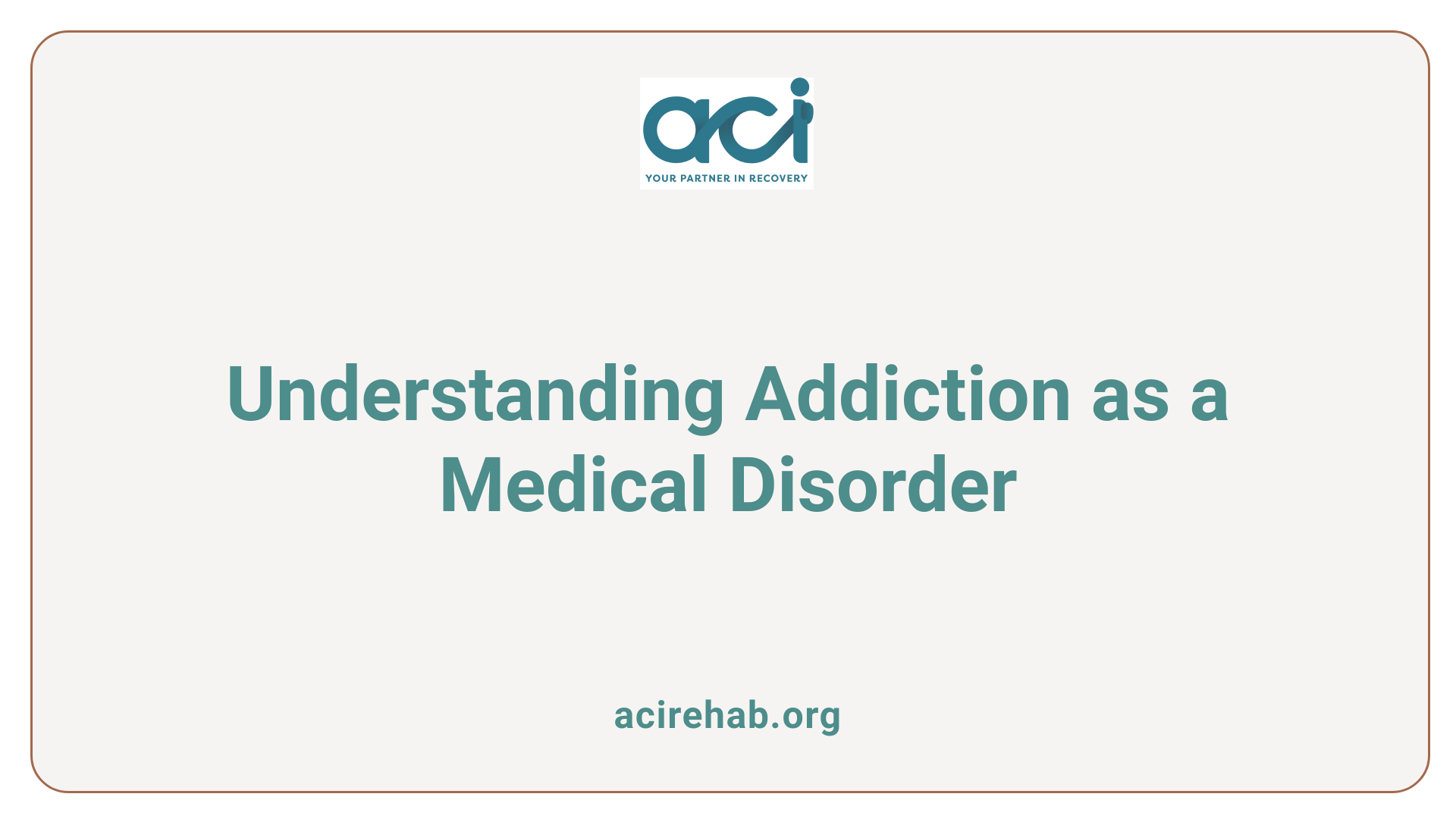
Is addiction an incurable disease, and what does that imply for treatment?
Addiction is classified as a chronic disease by major medical associations, indicating that while it can be managed with comprehensive treatment plans, it is not permanently curable. This disease is characterized by compulsive substance use despite serious health and social consequences.
Addiction alters brain function, particularly in areas governing motivation, reward, and memory. These changes can impair decision-making abilities and behavioral control. For instance, drugs can affect the brain’s reward pathways, reinforcing the cycle of substance use even in the face of adverse outcomes.
The chemical dopamine plays a vital role in addiction. It is responsible for feelings of pleasure and reward, and drugs can artificially elevate its levels, leading to a reliance on substances for pleasurable experiences. Over time, this can make it difficult for individuals to find joy in everyday activities, steering them back to substance use to regain that sense of pleasure.
Genetic factors contribute to about 50% of the risk of developing addiction, highlighting its biological complexity alongside environmental influences. Treatment approaches must be tailored to individual needs and often include medication-assisted treatment, therapy, and lifestyle changes.
Understanding addiction as a medical disorder, rather than a moral failure, emphasizes the need for compassionate and effective treatment strategies that acknowledge the chronic nature of this condition.
Treatment Approaches and Management Strategies
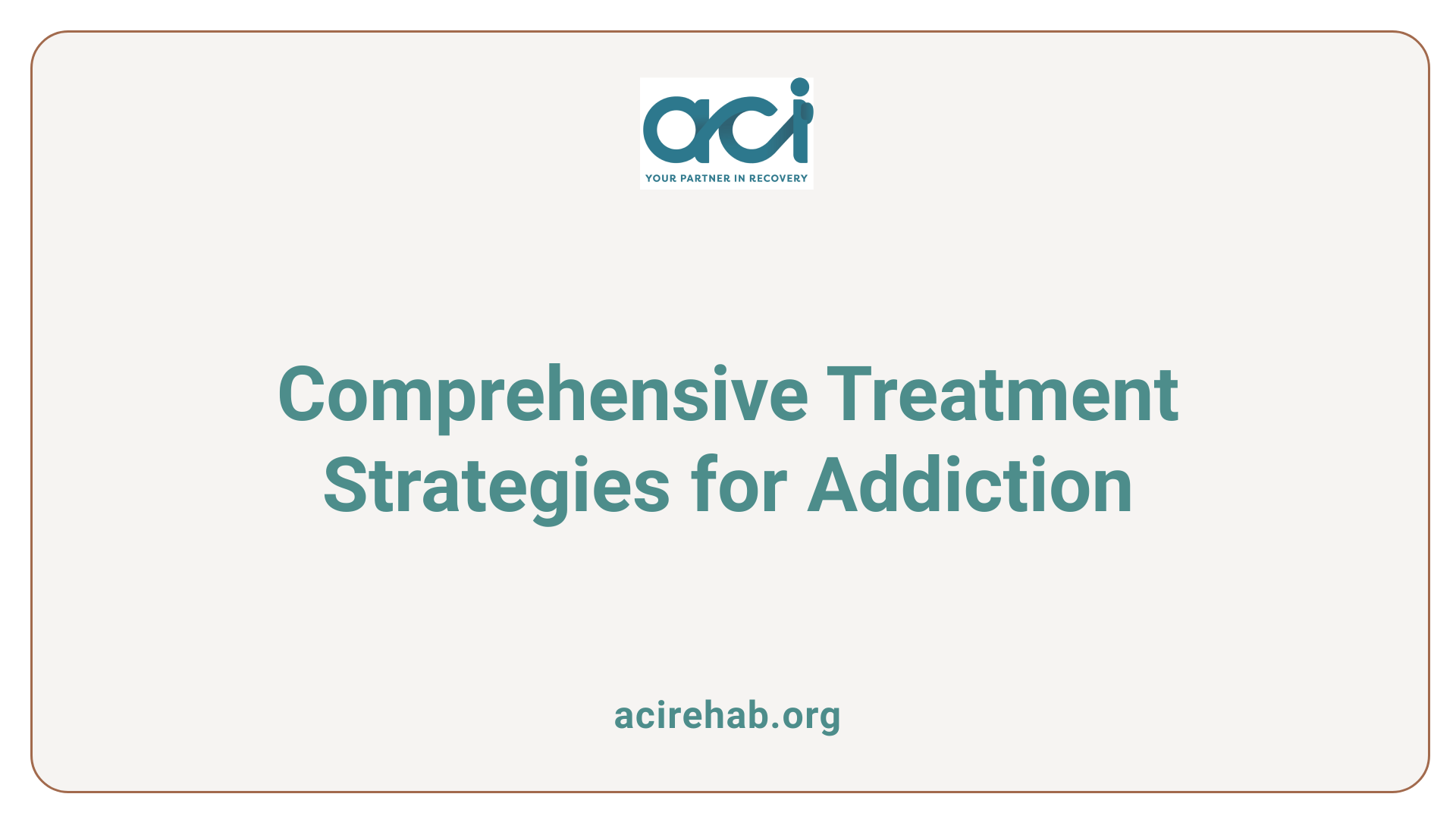
Behavioral Counseling and Therapy
Addiction is a complex disease that requires a multifaceted approach to treatment. Behavioral counseling and therapies, including Cognitive Behavioral Therapy (CBT), are essential in helping individuals change their attitudes towards substance use. These therapies also teach coping strategies to deal with cravings and triggers. Treatment may include individual, group, or family therapy to cater to different needs and circumstances, emphasizing personal, social, and emotional healing.
Medication-Assisted Treatment for Various Addictions
For certain substances, medication can play a vital role in the recovery process. Medications are available to help normalize brain function and reduce cravings, particularly for opioids, nicotine, and alcohol. For instance, Naltrexone and Acamprosate assist individuals in managing alcohol use disorder while medications like buprenorphine can effectively reduce cravings associated with opioid addiction. However, these medications do not cure addiction; they assist in managing the chronic condition, underscoring the need for ongoing treatment.
Importance of Long-Term Support
Long-term follow-up care is crucial in managing addiction, as the journey to recovery is ongoing. Without continued engagement in a treatment plan, the risk of relapse significantly increases. Support networks, including self-help groups and community resources, provide essential encouragement and accountability. The Substance Abuse and Mental Health Services Administration’s (SAMHSA) National Helpline is one such resource, offering free, confidential help to those seeking support in their recovery journey. While addiction cannot be cured outright, effective management combining therapy, medication, and long-term support can lead to successful, fulfilling lives free of substance use.
Effective Addiction Treatment and Recovery
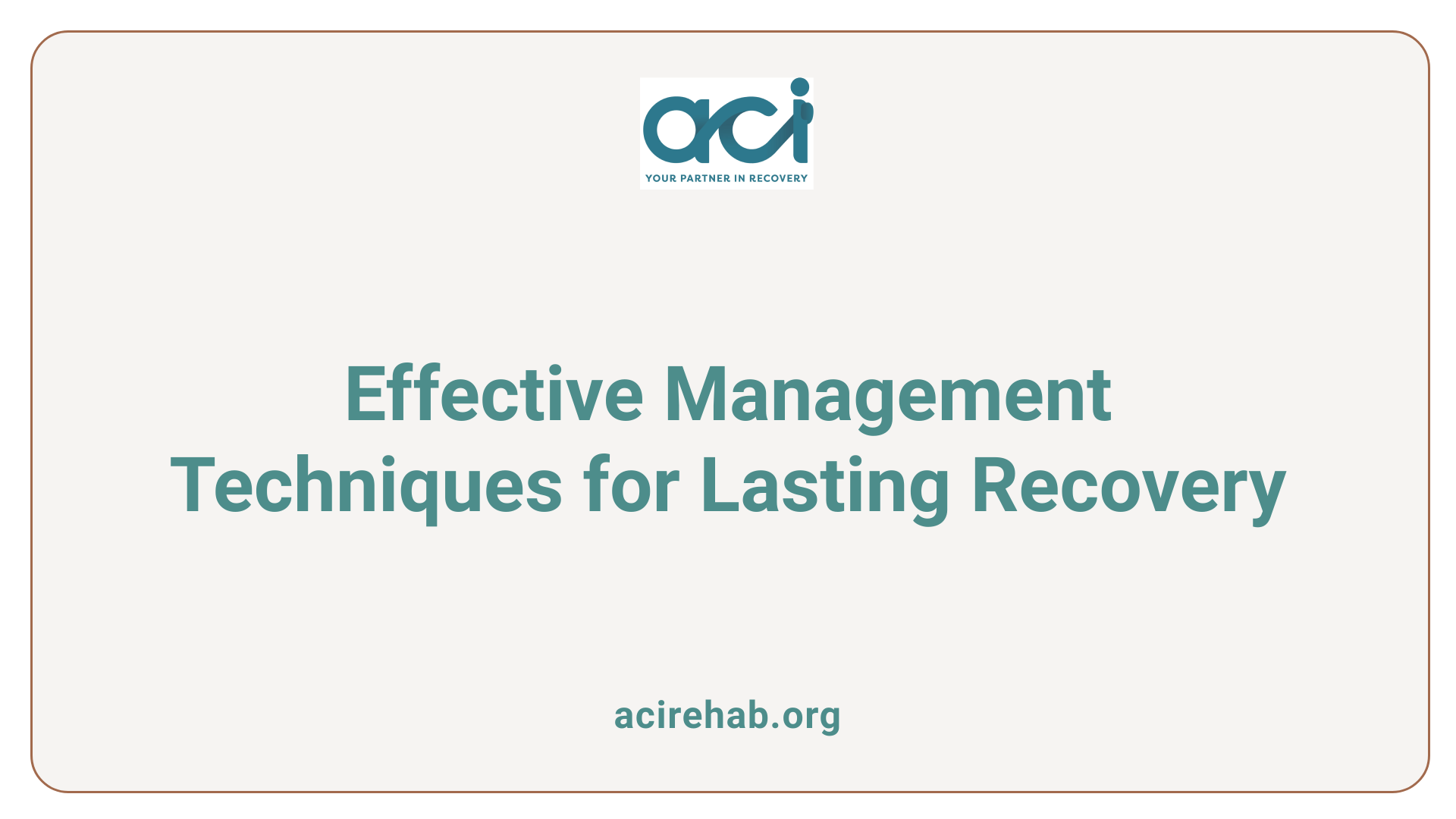
How can addiction be effectively treated and managed?
Addiction treatment requires a comprehensive strategy that incorporates both medical and therapeutic interventions. Recognized as a chronic brain disorder, addiction impacts individuals differently, necessitating personalized treatment plans that accommodate specific circumstances and needs.
Role of therapy and detoxification
Therapeutic approaches play a pivotal role in this journey. Detoxification is often the first step, aimed at safely managing withdrawal symptoms that can be physically or psychologically taxing. Following detox, therapies such as Cognitive Behavioral Therapy (CBT) can be instrumental in addressing underlying thought patterns and behaviors associated with addiction. This dual approach can significantly enhance emotional resilience.
Medication for managing withdrawal symptoms
In addition to therapy, medications are available to help ease withdrawal symptoms. FDA-approved options include lofexidine for opioid withdrawal and various medications for alcohol and nicotine addictions. These medications aid in normalizing brain function and curbing cravings, which are vital components of long-term recovery strategies.
Combining therapies for best outcomes
The most successful outcomes typically arise from combining medications with behavioral therapies. This holistic method not only targets the physiological aspects of addiction but also fosters emotional and psychological healing. Effective management of addiction emphasizes that while recovery is a journey rather than a straightforward cure, commitment to ongoing treatment can lead to substantial life improvements and well-being.
| Treatment Approach | Purpose | Additional Information |
|---|---|---|
| Detoxification | Safely manage withdrawal symptoms | Medically supervised to prevent severe complications |
| Behavioral Therapy | Change unhealthy thought patterns | Cognitive Behavioral Therapy (CBT) highly effective |
| Medications | Reduce cravings and normalize brain function | Lofexidine and Naltrexone among approved options |
| Continuous Support | Enhance recovery stability | Regular engagement crucial for avoiding relapse |
Emotional and Social Impacts of Addiction
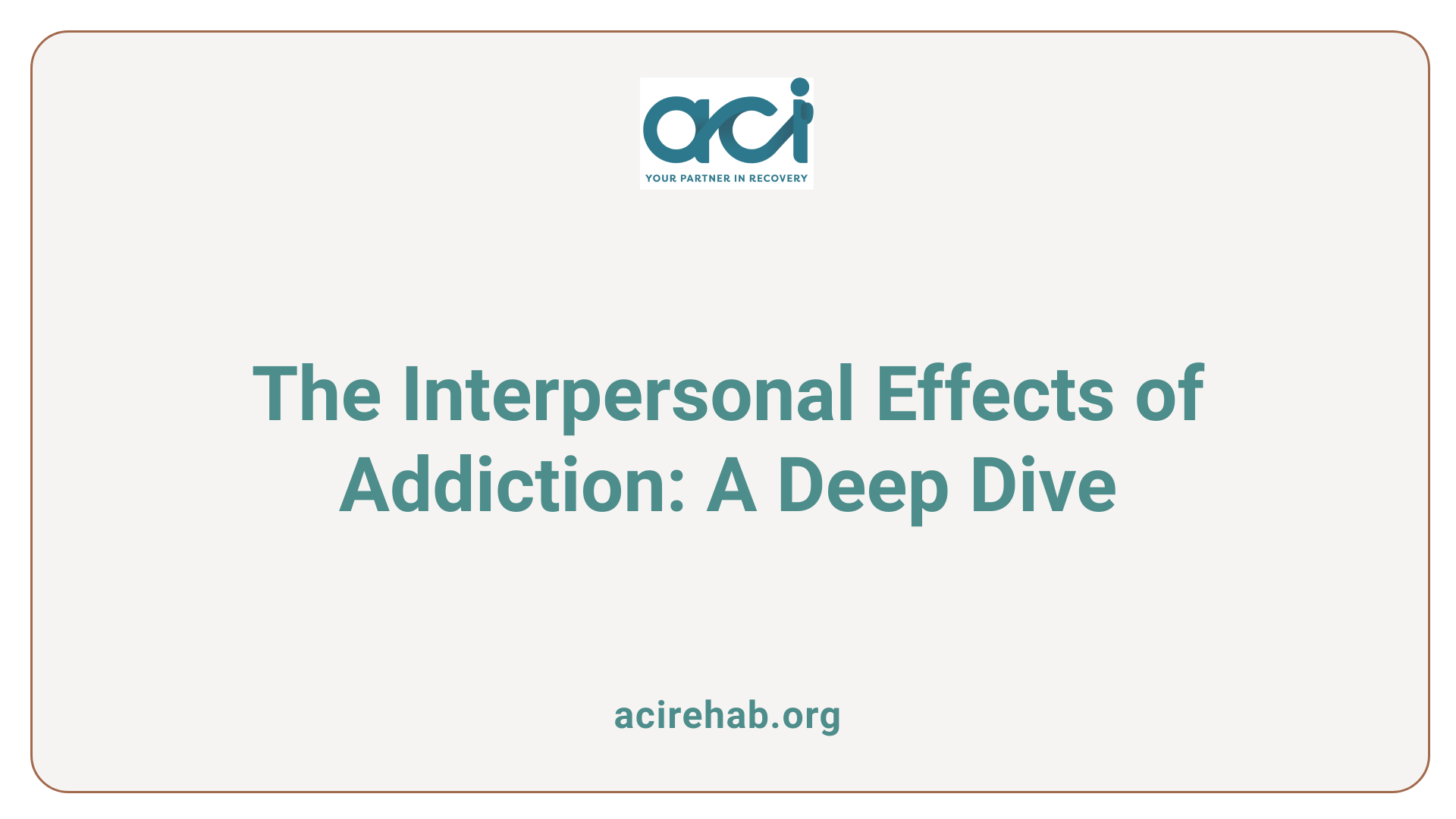
Can addiction impact an individual’s ability to love, and can it be restored with treatment?
Addiction can profoundly affect an individual’s ability to love and maintain healthy relationships. When one is consumed by addiction, emotional instability often results, leading to communication breakdowns and a diminished capacity for empathy. These changes can create significant rifts in personal relationships, fostering distrust as deceptive behaviors and mood swings alienate loved ones.
However, addiction does not erase the innate capacity for love. With effective treatment, individuals can reconstruct their emotional connections and rebuild trust. Engaging in therapy and support groups provides both the person struggling with addiction and their partners with essential tools to navigate the complexities introduced by addiction. Together, they can learn to set boundaries, prioritize self-care, and cultivate healthier dynamics.
Commitment to recovery is not just about abstaining from substances; it also involves rediscovering one’s emotional self and mending relationships. When individuals embrace the recovery process, they unlock the potential for restoring love and trust, demonstrating that healing is not only possible but attainable with the right support.
The Role of Medication-Assisted Treatment
Specific Medications Used in Treatment
Medication-assisted treatment is a vital component in addressing substance use disorders (SUDs). Here are some commonly used medications:
- Naltrexone: Helps reduce cravings for alcohol and opioids by blocking the euphoric effects these substances produce.
- Buprenorphine: A partial opioid agonist that stabilizes brain function and decreases cravings in individuals dealing with opioid addiction.
- Acamprosate: Used for alcohol use disorder (AUD), this medication helps reduce withdrawal symptoms post-cessation.
- Disulfiram: Causes unpleasant reactions when alcohol is consumed, thus deterring individuals from drinking.
How Medications Help Normalize Brain Function
Medications serve several crucial roles in addiction recovery:
- Normalize Brain Chemistry: Substance abuse alters dopamine levels and other brain functions, medications like buprenorphine and naltrexone can help restore normal neurotransmitter activity.
- Reduce Cravings: By mitigating withdrawal symptoms and cravings, medications assist individuals in focusing on behavioral therapies and supportive measures necessary for long-term recovery.
- Support Behavioral Therapy: Combining medication with therapy is often most effective, allowing individuals to build coping skills while minimizing the risk of relapse.
In summary, while medication alone does not cure addiction, it significantly contributes to managing the condition and supports a reformed lifestyle.
Addiction Recovery as a Lifelong Journey
Challenges in Maintaining Sobriety
Maintaining sobriety is often fraught with challenges due to the chronic nature of addiction. Relapse is common and can occur even after prolonged periods of abstinence. This underscores the necessity for ongoing treatment and support. Many individuals report that cravings can still arise long after they’ve stopped using substances. Therefore, acknowledging these challenges is crucial when navigating the recovery process.
Support Systems Essential for Recovery
A strong support system plays a vital role in the recovery journey. Engaging with recovery groups, such as Alcoholics Anonymous or community-based organizations, can provide individuals with encouragement and shared experiences. Additionally, professional guidance from therapists and addiction specialists aids in developing coping strategies and addressing underlying issues. Access to resources like SAMHSA’s National Helpline ensures that individuals and families can find the necessary support year-round. Together, these elements create a comprehensive framework that enhances the likelihood of successful long-term recovery.
Emerging Treatments and Innovations in Addiction Care
Recent Research on Spiritual Meditation
Recent studies have demonstrated that spiritual meditation can have a positive impact on addiction recovery. This practice appears to increase dopamine levels in the brain, a crucial factor in enhancing feelings of pleasure and reward. By aligning with the principles found in 12-Step programs, spiritual meditation offers individuals a new pathway to recovery, facilitating emotional regulation and resilience against cravings.
Innovative Therapies and Techniques
Innovative therapeutic approaches are increasingly utilized in addiction care. Techniques like cognitive-behavioral therapy (CBT) help individuals identify and change maladaptive thought patterns associated with substance use. Additionally, medications such as naltrexone and buprenorphine are now combined with these therapies to provide a holistic treatment plan that addresses both physical and psychological aspects of addiction.
These evolving methods signify a shift towards comprehensive care, but continuous support remains essential. Successful recovery often hinges on the individual’s engagement with treatment, making recent advancements in addiction care an exciting development for those seeking help.
Building a Support Network: Resources and Helplines
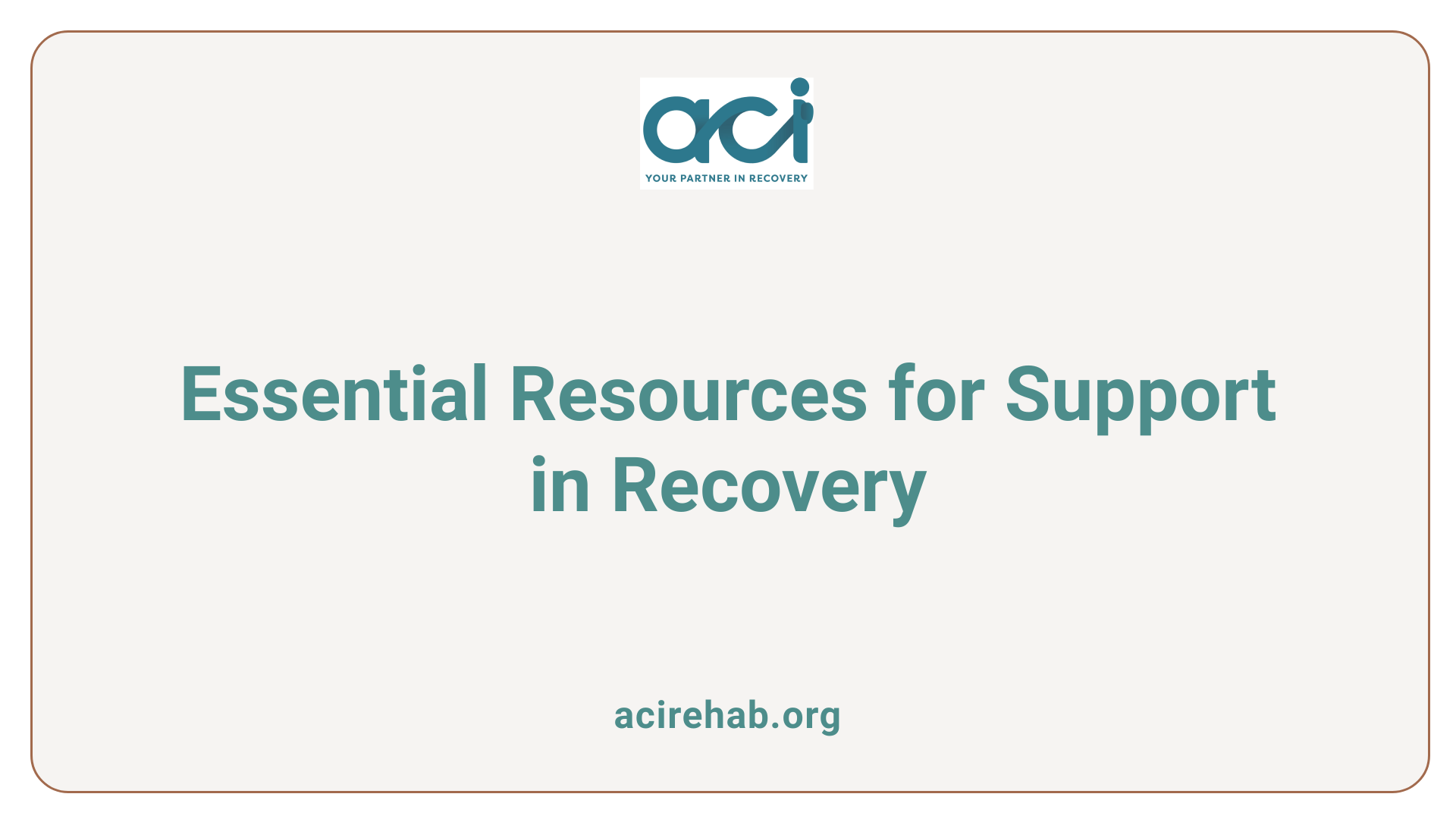
SAMHSA’s National Helpline Services
The Substance Abuse and Mental Health Services Administration (SAMHSA) offers a vital resource known as the National Helpline. This confidential, free service is available 24/7 for individuals and families grappling with mental health and substance use disorders. The helpline assists users in locating treatment facilities, support groups, and community-based organizations, demonstrating a commitment to providing accessible recovery support year-round. In 2020 alone, the helpline received 833,598 calls, underscoring the significant engagement and need for such services across the nation.
Community-Based Support Resources
Community support is fundamental for individuals recovering from addiction. Local support groups, such as Alcoholics Anonymous (AA) and Narcotics Anonymous (NA), offer fellowship and shared experiences, which can significantly enhance recovery efforts. Moreover, many communities provide access to state-funded treatment programs that cater to those without health insurance. Engaging in community resources not only helps individuals maintain their commitment to sobriety but also fosters a sense of belonging and accountability, which is crucial in overcoming addiction.
| Resource Type | Description | Benefits |
|---|---|---|
| SAMHSA National Helpline | 24/7 confidential support line | Access to treatment facilities and referral services |
| Local Support Groups | Groups like AA and NA | Peer support and shared recovery experiences |
| State-Funded Programs | Government-supported treatment options | Accessible help for uninsured individuals |
The Path Forward: Managing Addiction
While addiction remains an incurable disease, understanding it as a chronic condition that can be managed with the right tools and support is essential. Recovery requires a multifaceted approach, ongoing commitment, and resilience. It’s important to foster a compassionate understanding of the challenges involved and to provide continuous support to those affected. By doing so, we can help individuals not only achieve sobriety but also lead thriving, fulfilling lives. With advancements in treatment and a robust support network, the journey toward recovery is achievable, offering hope not just for those suffering but for their communities and loved ones.
References
- Teens Ask: “Is There a Cure for Addiction?”
- Stairway to Recovery: Can Addiction be Cured?
- SAMHSA’s National Helpline
- Drug addiction (substance use disorder) – Diagnosis and treatment
- Does addiction last a lifetime? – Harvard Health
- Is Addiction Really a Disease? – IU Health
- Can Drug & Alcohol Addiction Be Cured? What You Should Know

